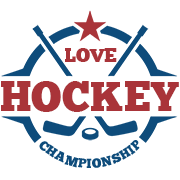Battle of Quebec
The Battle of Quebec (French: Bataille du Québec) is a former National Hockey League (NHL) rivalry between the Montreal Canadiens and Quebec Nordiques. The rivalry lasted from 1979–80 to 1994–95. The teams played against each other five times in the NHL playoffs, and the Canadiens won three of the series. One meeting in 1984 resulted in the Good Friday Massacre, a game in which multiple brawls happened. The Battle of Quebec extended to politics, in which the Canadiens and Nordiques became symbols for rival parties, and beer distribution, as the teams were both owned by competing breweries.
The Nordiques began play in 1972, in the World Hockey Association (WHA). As part of the new league’s raid on NHL talent, the team signed J. C. Tremblay, a Canadiens defenceman, to a five-year contract. Quebec also hired former Montreal players Maurice Richard and Jacques Plante as head coaches. The Canadiens–Nordiques rivalry began in the 1979–80 season, when the Nordiques became one of four former WHA teams to join the NHL as part of the NHL–WHA merger. The Canadiens originally were one of five teams to vote down the merger. However, the Canadiens’ owner, Molson Brewery, feared that Canadian cities with WHA teams in the deal would boycott the brand, and the team supported the merger in a subsequent vote. At first the teams were placed in different divisions; Montreal was in the Norris Division, while Quebec was given a spot in the Adams Division.
1993 playoffs and Nordiques’ relocation
In the 1993 playoffs, the Canadiens and Nordiques met in the opening round. The Nordiques took a 2–0 lead in the series, but Montreal won four straight games after that to capture the series. Three of the six games went to overtime; the Canadiens won two of those, including Game 5 in Quebec City, which gave them the lead in the series. A 6–2 victory in Game 6 clinched the series for the Canadiens, who later won the Stanley Cup. The rivalry came to an end following the 1994–95 season, when the Nordiques relocated to Denver, Colorado, and became the Colorado Avalanche.
However, the rivalry never completely died out. In 2002, the Avalanche held an exhibition game against the Canadiens in Quebec City. When Joe Sakic, a former Nordique, entered the arena with the Nordique blue, the fans gave him a thundering ovation. He said that “you’re not going to find a better hockey city. It was really moving. There are no words.” In 2010, La série Montréal-Québec, a TVA television series featuring games between amateur teams from the two cities, premiered.
Both of the teams in the rivalry were based in the province of Quebec. Montreal is the province’s largest city, while Quebec City is its capital. One Nordiques employee said of the disparity between the size of the two cities, “Quebec City has always had a relationship of frustration with Montreal. This rivalry is the first time that Montreal and Quebec City can compete head to head in one event.” Michael Farber wrote that hostility towards the Canadiens in Quebec City dated back to the team’s signing of Jean Beliveau, who had previously played with the Quebec Aces. According to the Canadian Press, the Battle of Quebec also matched teams with opposite backgrounds. The Canadiens were a traditionally strong team, while the Nordiques were relatively new to the NHL during their playoff series in the mid-1980s. Stastny said of the rivalry, “It’s like two camps, each representing something, you’re not just playing for your team, you’re playing for your half-a-million supporters and they’re playing for their one or two million supporters.”
The teams took on political symbolism during the rivalry. The Canadiens were seen by some as reflective of those in favour of keeping the province as part of Canada, while the Nordiques were seen as a symbol of Quebec independence. The Nordiques gained a large francophone fan base in Quebec, and their uniforms contained the colours and crest from the province’s flag. One early-1980s survey by the La Presse newspaper found that, outside of east Montreal, support for the Canadiens and Nordiques tended to mirror where support existed for the Quebec Liberal Party and Parti Québécois, respectively.
A concurrent rivalry took place between the teams’ owners, which were both breweries. Molson had purchased ownership of the Canadiens before the NHL–WHA merger, and the Nordiques were controlled by Carling O’Keefe. In May 1982, following the Canadiens’ elimination from the NHL playoffs at the hands of the Nordiques the previous month, a 9.5 per cent decline in Quebec’s beer consumption was recorded. Montreal reporter Red Fisher credited Molson and Carling O’Keefe for expanding the rivalry, saying, “The breweries have carried the red flags in this.”



2 Comments
Please subscribe and like. Thank you
This really takes me back. I remember playing NHLPA for SNES (technically NHL 93)